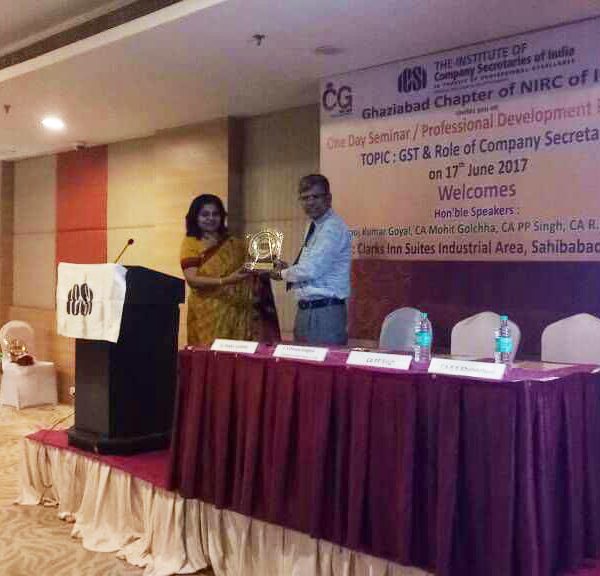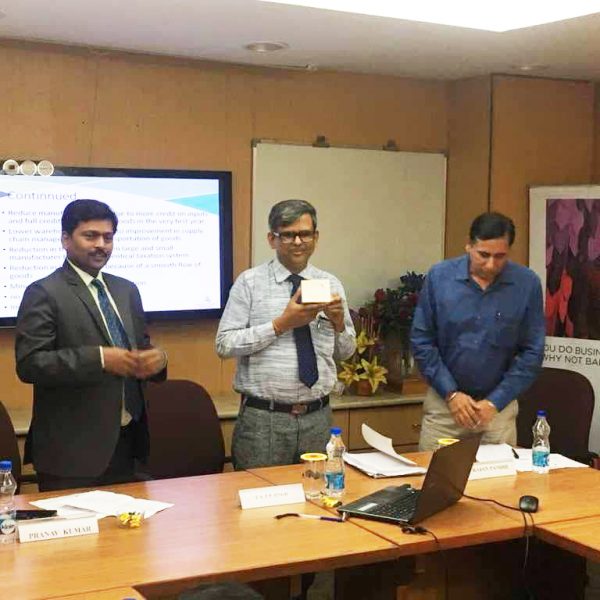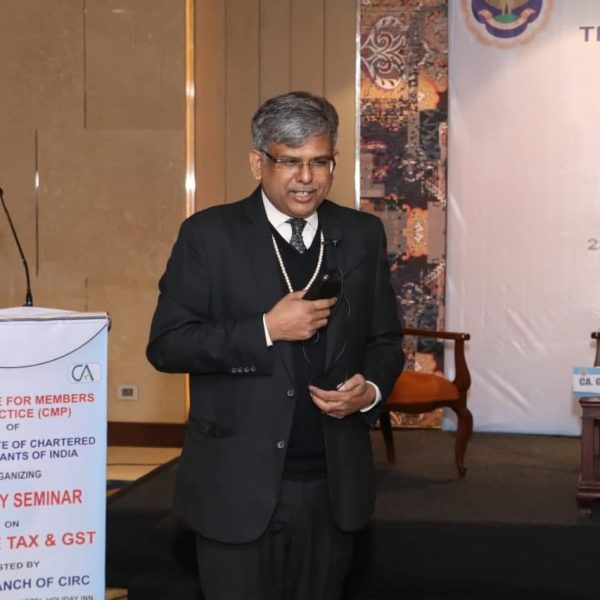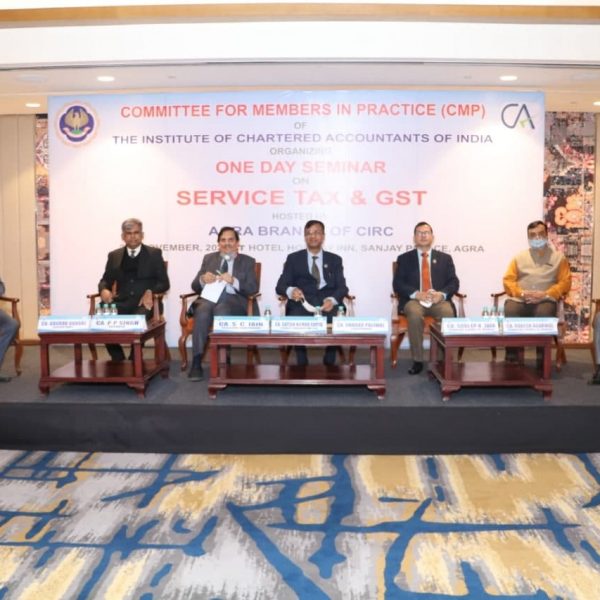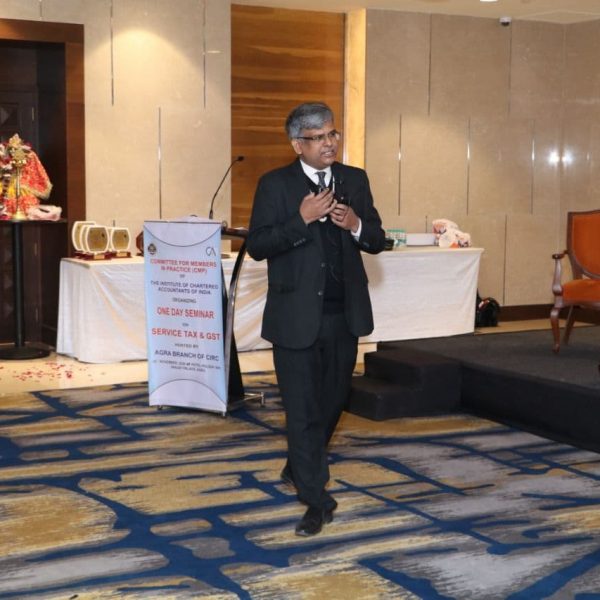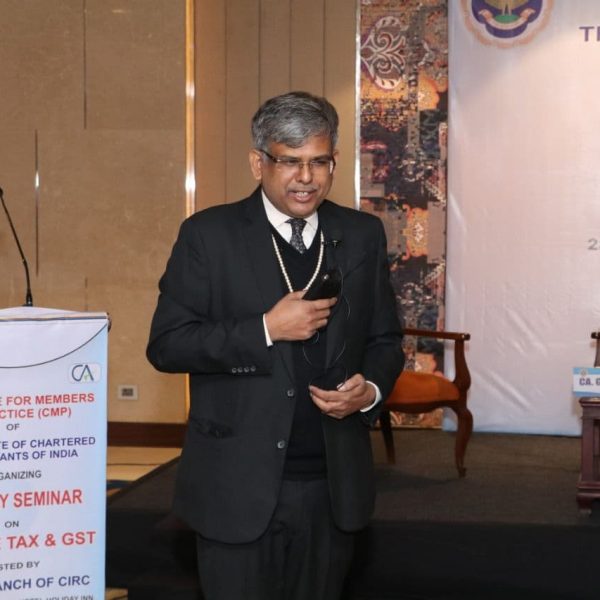Introduction: In the case of death of an individual who will pay the demand of tax, interest, penalty, if any and if any liability to pay so then to what extent the legal obligation to pay. Similarly who will file the ITR, who will represent the deceased in any assessment/ income escaping assessment proceedings, what to do if legal representative is aggrieved of the order passed by tax officers, how to file appeal, refund matters etc. this article will bring light on these aspects of income tax law.
Legislative history of law: Section 24B was introduced for the first time to recover tax from legal representative in 1922 Act by Indian income tax (2nd amendment Act) 1933 and later on in new income tax act 1961 provisions has been made in section 159/168/176(4) of said Act for all these issues.
In section 24B of the income tax Act 1922, provisions’ covering the followings:
- Legal representative liable to tax only.
- No concept of deemed assessee although tax liability on Legal representative
- No personal liability
- No reassessment of prior period AYs prior to AY corresponding to the PY in which death.
But in income tax act 1961, section 159 has enlarged the scope as under:
- Legal representative liable to pay any sum means tax, interest, penalty, late fee etc.
- concept of deemed assessee
- Personal liability of legal representative in certain cases where legal heir has parted with /charged/sold the assets under section 159(4)
- Reassessment of prior AYs possible under section 147/148.
Where a person dies, his legal representative shall be liable to pay any sum which the deceased would have been liable to pay if he had not died, in the like manner and to the same extent as the deceased.[S-159(1)]
Meaning of legal representative:
As per section 2(11) legal representative” means a person who in law represents the estate of a deceased person, and includes any person who intermeddles with the estate of the deceased and where a party sues or is sued in a representative character the person on whom the estate devolves on the death of the party so suing or sued.
As per section 2(29) legal representative” has the meaning assigned to it in clause (11) of section 2 of the Code of Civil Procedure, 1908.
Definition as per CPC is wide and inclusive one and here legal representative is not only legal heir but also executor, legatee and administrator in possession of estate of deceased without being any title as legal heir but seek to represent the estate of deceased.
Agent holding power of attorney from the executor of a deceased person is a legal representative.
Class –I legal heir u/s 8 of the Hindu succession Act 1956 is also legal representative.
Difference between Legal representative and representative assessee:
A receiver falls within the definition of representative assessee by reference to income as per section 160(1) in respect of income which the Court of Wards, the Administrator- General, the Official Trustee or any receiver or manager (including any person, whatever his designation, who in fact manages property on behalf of another) appointed by or under any order of a court, receives or is entitled to receive, on behalf or for the benefit of any person, such Court of Wards, Administrator-General, Official Trustee, receiver or manager;
But receiver is not legal representative because receiver is appointed for the benefit of certain person where as legal representative has obligations as well
Case when it became personal liabilities: Every legal representative shall be personally liable for any tax payable by him in his capacity as legal representative if, while his liability for tax remains undischarged, he creates a charge on or disposes of or parts with any assets of the estate of the deceased, which are in, or may come into, his possession, but such liability shall be limited to the value of the asset so charged, disposed of or parted with.[S-159(4)]
Limitation of liabilities: The liability of a legal representative under this section shall, subject to the provisions of sub-section (4) and sub-section (5), be limited to the extent to which the estate is capable of meeting the liability. [S-159(6)]
Meaning of estate:
The estate of a deceased person is the bundle of rights, powers, immunities and liabilities which survive him. With reference to a living person, “estate” means the interest he has in lands and other subjects of property; it designates property, real or personal, in which he has a right or interest. The degree, quantity, nature and extent of interest which he has in property is his “estate”, signifying everything of which riches or fortune may consist. The aggregate of a man’s proprietary rights constitutes his estate, as distinct from those rights which are often called personal and which determine his status. Proprietary rights are valuable and are always worth something; they may be jus in rem or jus in personam; rights of either sort are proprietary, if they are the elements of a man’s wealth which he can dispose of at his pleasure, or pass on to others. [B. Rajeevi R. Hegde vs Addl. Agricultural Income-Tax 1981 127 ITR 855 Ker HC]
Validity of assessment proceedings: For the purpose of making an assessment (including an assessment, reassessment or recomputation under section 147) of the income of the deceased and for the purpose of levying any sum in the hands of the legal representative in accordance with the provisions of sub-section (1),—
(a) any proceeding taken against the deceased before his death shall be deemed to have been taken against the legal representative and may be continued against the legal representative from the stage at which it stood on the date of the death of the deceased;
(b) any proceeding which could have been taken against the deceased if he had survived, may be taken against the legal representative; and
(c) all the provisions of this Act shall apply accordingly.
- Survival and continuation of assessment/ income escaping assessment proceedings against the deceased, continue in the name of legal representative
- Demand, recovery proceedings or any other proceedings continue against the legal representative
- Filing of ITR, statement etc. by legal representative
Legal representative being deemed assessee: The legal representative of the deceased shall, for the purposes of this Act, be deemed to be an assessee. [S-159(3)]
The provisions of section 161(2), section 162, and section 167, shall, so far as may be and to the extent to which they are not inconsistent with the provisions of this section, apply in relation to a legal representative.[S-159(5)]
Liability of tax ,interest etc. and ITR/assessments/appeal in the case of death:
Computation of income of the deceased:
As a legal heir, you have to file the return on behalf of the deceased for income till the date of death.
Computation of the income of the deceased from the start of the financial year till the date of death, and thereby the tax payable on it in the same manner as if the deceased was alive for all the five heads of income including business income , rental income, capital gain, otter sources on the basis of invoice issued of supply made, bank Statements, investments and other relevant documents necessary for deduction and investments made and income tax calculation.
Income earned after the date of death from the assets inherited from the deceased is taxable in the hands of the legal heir.
Legal heir should include income inherited from the deceased in his own income while filing own income tax return.
Illustrations –income
“N who has a rental income of Rs 30,000 per month and interest income of Rs 10,000 per month dies on 20th Sep 2017. Her legal heir needs to file the return on behalf of “N” for the period 1st April 2020 to 20th Sep 2020.
The income to be included in the return of “N” to be filed by legal heir would be :
Illustrations –income
“N” who has a rental income of Rs 30,000 per month and interest income of Rs 10,000 per month dies on 20th Sep 2017. Her legal heir needs to file the return on behalf of “N” for the period 1st April 2020 to 20th Sep 2020.
| Income from House Property Rental Income (From 1st April 2020 to 20th Sep 2020) | ₹30000*5 months & 20 days | ₹ 1,70,000 |
| Income from other Sources Interest Income (From 1st April 2020 to 20th Sep 2020) | ₹ 10000*5months & 20 days | ₹ 56,667 |
The income to be included in the personal return of legal heir to be filed by him/her would be :
| Income from House Property Rental Income (From 1st April 2020 to 20th Sep 2020) | ₹30000*6 months & 10 days | ₹ 1,90,000 |
| Income from other Sources Interest Income (From 1st April 2020 to 20th Sep 2020) | ₹ 10000*6months & 10 days | ₹ 63,333 |
Issue: deduction from house property income
Claim for deduction of property tax, generally paid for the whole FY either in the beginning of the FY or end of the FY.
- Paid by deceased for the whole FY
- Paid by the legal heir for the whole FY.
# Issue: Standard deduction u/s 24b
# Issue: interest on borrowings
- All the EMI regular both by the deceased and legal heir.
- Default in payment of EMI – all the defaulting EMI of deceased paid by legal heir only
- Few EMI not paid by deceased which was latter paid by legal heir.
- Defaulting EMI paid by legal heir but out of estate of the deceased only
- Defaulting EMI paid by legal heir but out of own fund by only by the legal heir.
Tax liability of the deceased- to be paid by the legal heir:
The legal heir is responsible for paying taxes liable on the Income tax return of the deceased. However, he is not personally liable for the taxes due. The liability of the legal heir is limited to the extent to which the assets he inherited are capable of meeting the liability. For instance, if a person receives Rs 80 lakhs as his share from his father’s property and his father tax liability is Rs 95 lakhs, then he cannot be made liable to pay more than Rs 80 lakhs. The liability of the legal heir shall be limited to the value of the assets inherited.
Liability in case of penalty, fine, interest demand:
The legal heir is responsible not only for the tax payable, but also for the other sum i.e. penalty, fine or interest which the deceased would have been liable had he not died. It means that the penalty proceedings for a default by the deceased can also be initiated against the legal heir. However, his liability would be limited to the extent of the assets inherited from the deceased.
Validity of Continuity of proceedings- Notice etc.
Continuity of proceedings only if proceeding initiated against deceased before his death, otherwise fresh proceeding in the name of legal heir.
Where demand notice already served on the deceased during his life time , no need to serve fresh demand notice on legal representative for recovery of demand. Sukhvansh narain singh Vs, collector (1980)(All HC)
Notices in the case of reassessment proceedings etc.-
- If executor/executors appointed under a will – all such executor/executors
- Intestate deceased- administrator(s) appointed- all such administrator(s)
- Intestate deceased- administrator not appointed- all the legal heirs.
Assessment order: Assessment order should be in the name of legal representative and not in name of deceased if made it will be nullity.
Refund: Refund of legal representative could not be adjusted against demand of deceased
para-6 of order :
In my considered opinion, the Assessing Officer was not right in adjusting the refund amount payable to the petitioner against the outstanding dues of his late father by relying on Section 159(4) of the Act. The refund which has become payable to the petitioner is out of his personal case having no connection or/and nexus with that of the case of his late father. It is not the case of the Department that the refund which has become payable to the petitioner does not belong to the petitioner but in fact belongs to his late father which the petitioner is now claiming in his capacity as a legal representative of his late father.[Hasmukhalal vs Income-Tax Officer And Ors. on 21 March, 2001 2001 251 ITR 511 MP HC
Whether penalty can be imposed on legal representative?
If demand not paid of the deceased labiality – legal representative become assessee in default – liable for imposition of penalty. Raj kumar Vs ITO (ALL HC) 47 ITR 510
Delay or non-submission of return – penalty yes.
Penalty for concealment of income u/s 271(1)©- yes
No Prosecution –Gangabai Vs. state of Tamil Nadu (1981) 177 ITR 284.
Details required for registration on the income tax portal :
- PAN of the Deceased
- Surname of the deceased
- Middle Name of the deceased
- First Name of the deceased
- Date of Death
- Bank account details of Legal heir.
Documents as attachments while adding legal representative:
- Copy of the PAN card of Deceased
- Copy of the PAN card of the legal heir
- Copy of Death Certificate
- Copy of Legal Heir Proof.
Legal Heir Proof:
- Legal Heir Certificate issued by Court of Law /Local Revenue Authority.
- Surviving family member certificate issued by the Local Revenue Authority.
- Family Pension certificate issued by Central/State Government.
- Registered will.
- Letter issued by the banking or Financial Institution in their letter head, with official seal and signature mentioning the particulars of nominee or joint account holder to the account of the deceased at the time demise.
In the case of filing of appeal against the order where death of the assessee: Copy of the order passed in the name of the deceased (Mandatory only if the reason for registration is ‘Filing of an appeal against an order passed in the name of deceased’).
Any other compliances/ delay in return filing : Copy of the order /notice (Mandatory only if the reason for registration is ‘Filing of return of income/form of period in which deceased was alive through condonation request’ (or) ‘A notice/order received from Income Tax Department in the name of the applicant for compliance on behalf of a deceased’)
A Success Message will be displayed confirming the submission of request to ‘Register as Legal Heir’: Request will be sent to the e-Filing Admin for approval. The e-Filing Admin will check the authenticity of the request details and may Approve/Reject the request and Upon Approval/Rejection, an e-mail and SMS will be sent to the user who raised the request.
Conclusion: these special provisions of income tax law is very important and mandatory so must be complied by the legal representative time to time as required by law in their best interest and plan the things accordingly as per law.
Note: If reader has any query they can feel free to write us at cappsingh@gmail.com

